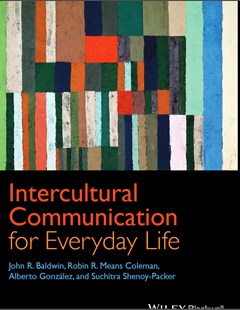Intercultural Communication for Everyday Life
A rationale for studying intercultural communication: Why should we know about other cultures? Action, ethichs and research: How can I make a difference? Subjective culture: What is the base upon which cultural communication is built?Identify: Struggle, resistance and solidarity: How can I think about my identity and that of other?
2014
Written for students studying intercultural communication for the first time, this textbook gives a thorough introduction to inter- and cross-cultural concepts with a focus on practical application and social action.
. Provides a thorough introduction to inter- and cross-cultural concepts for beginning students with a focus on practical application and social action
. Defines “communication” broadly using authors from a variety of sub disciplines and incorporating scientific, humanistic, and critical theory
. Constructs a complex version of culture using examples from around the world that represent a variety of differences, including age, sex, race, religion, and sexual orientation
. Promotes civic engagement with cues toward individual intercultural effectiveness and giving back to the community in socially relevant ways
. Weaves pedagogy throughout the text with student-centered examples, text boxes, applications, critical thinking questions, a glossary of key terms, and online resources for students and instructors.
(https://www.amazon.com/)
Baldwin, J. R. Intercultural Communication for Everyday Life. John Wiley & Sons, 2014.
 |  |  | |
| Academic writing for graduate students: Essential tasks and skills | Research Methods in Language and Education |
Thứ Ba, 16:14 26/04/2022
Copyright © 2018 Hanoi University of Industry.